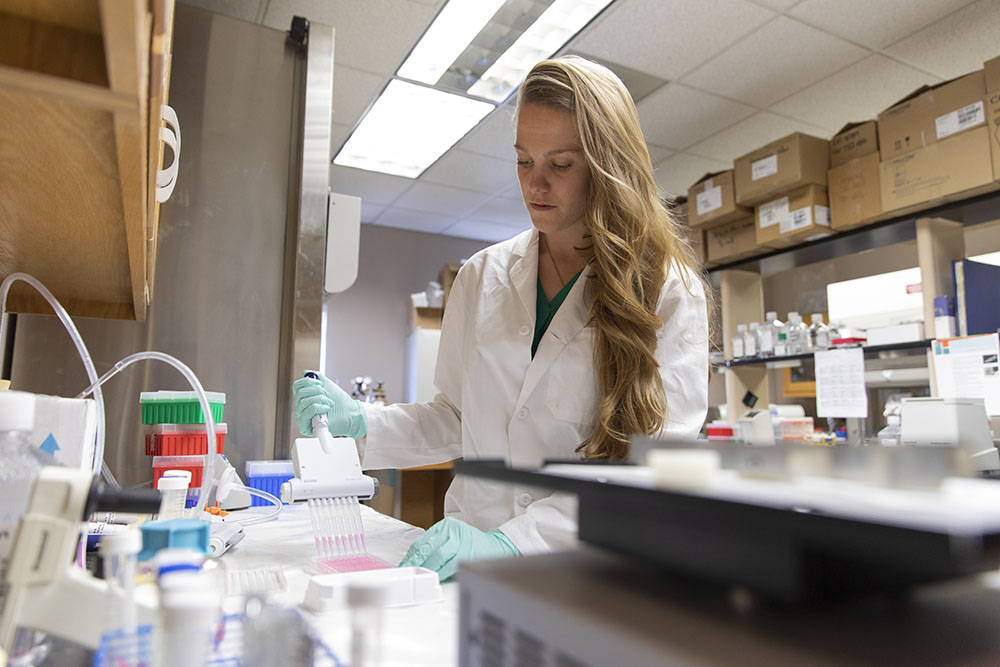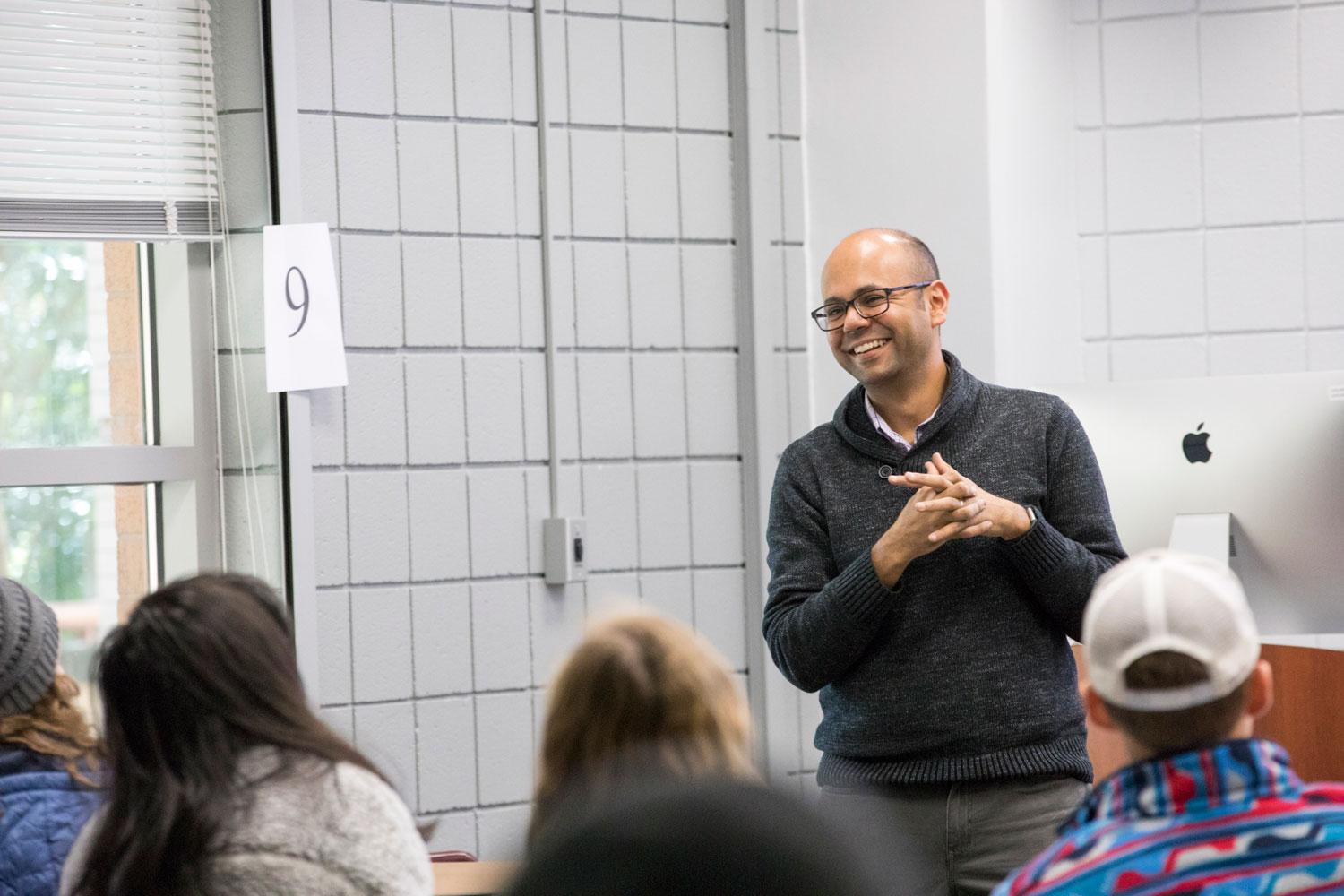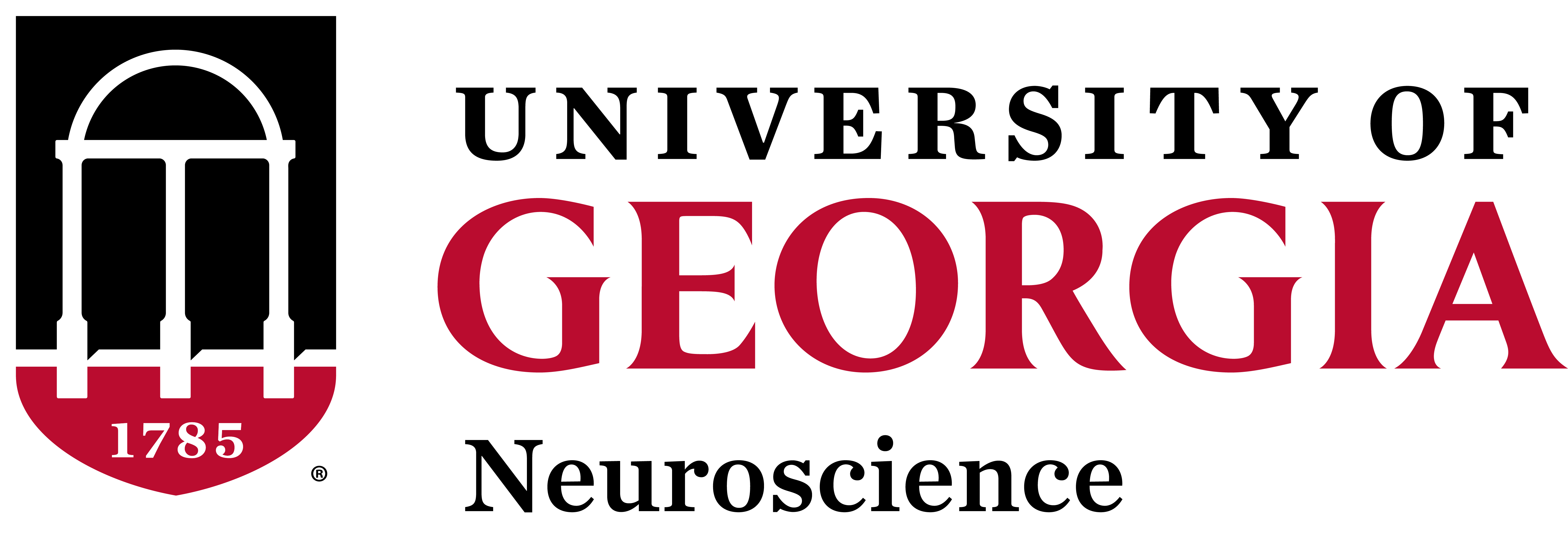Graduate Student Funding
GRADUATE STUDENT FUNDING
Research Assistantships
Graduate Research Assistantship (GRA) appointments are awarded by individual faculty members. GRA’s work up to 20 hours per week in return for an annual stipend, student health insurance subsidy, and a reduction of tuition to $25 per semester. GRA’s in the Neuroscience Program must remain in good academic standing and register a minimum of 18 credit hours in Fall/Spring and 12 credit hours in Summer. Explore current GRA openings here.

Teaching Assistantships
Graduate Teaching Assistantship (GTA) appointments are awarded by affiliate departments and require service of up to 20 hours per week. GTA’s receive an annual stipend, health insurance subsidy, and a reduction of tuition to $25 per semester. Prior to accepting a GTA, the student must complete the requisite trainings and adhere to the UGA TA Policy (see here).
Although the Neuroscience Program does not require a student to complete a one-semester teaching assistantship, we do encourage all students to complete the TAship training. Some major professors may require a teaching term. Students are therefore encouraged to discuss such opportunities with their major professor as early as possible.

Fellowship Opportunities
NIH T32 Training Grant
The Genetics Training Program (GTP) is an inter-departmental training program that includes faculty and their students from across UGA who focus on genetics research. The GTP is supported by an NIH T32 Genetics Training Grant. The GTP brings together the genetics community at UGA, and the NIH T32 training grant provides students from across campus with training in genetics and opportunities for career development.
NIH Fellowship Grant Program (F31)
The NIH offers a number of fellowship opportunities designed to promote research to students. The goal of such programs is to enable promising predoctoral students with potential to develop into a productive, independent research scientists and to obtain mentored research training while conducting dissertation research. See here.
Individual Predoctoral to Postdoctoral Fellow Transition Award (NIH F99-K00)
The purpose of the Predoctoral to Postdoctoral Fellow Transition Award (F99/K00) is to encourage and retain outstanding graduate students who have demonstrated potential and interest in pursuing careers as independent researchers. The award will facilitate the transition of talented graduate students into successful research postdoctoral appointments.
ARCS Foundation Fellowship
ARCS Foundation is a nationally recognized nonprofit organization started and run entirely by women who boost American leadership and aid advancement in science and technology. To address the country’s need for new scientists and engineers, they provide unrestricted funding to help the country’s brightest PhD students create new knowledge and innovative technologies. To inquire about this funding opportunity, please see here.
NSF Graduate Research Fellowship Program (GRFP)
The NSF GRFP recognizes and supports outstanding graduate students in NSF-supported STEM disciplines who are pursuing research-based master’s and doctoral degrees at accredited US institutions.
Fellowships provide the student with a three-year annual stipend of $34,000 along with a $12,000 cost of education allowance for tuition and fees (paid to the institution), as well as access to opportunities for professional development available to NSF-supported graduate students.
Georgia CTSA TL1 (T32-like) Training Grant | Clinical and Translational Research Training
The Georgia CTSA, the NIH-supported Clinical and Translational Science Award TL1 program, is focused on providing innovative didactic and mentored research training to individuals interested in careers that encompass clinical and/or translational research. The TL1 program provides an opportunity to complete the Master of Science in Clinical Research or the Certificate Program in Translational Research. The TL1 program supports predoctoral and postdoctoral trainees in health-related disciplines.
Enhancing Neuroscientific Discovery Through Diverse Communities (SfN)
The Neuroscience Scholars Program (NSP) is a two-year online training program open to underrepresented graduate students and postdoctoral researchers.
University-level Funding Opportunities
Information on available university-level funding is available through the UGA Graduate School. This site provides links to additional fellowship, scholarship, and financial aid opportunities.
International Student Funding
The following are a series of financial resources to assist international students in their research.
- The UGA Office of International Education
- The March of Dimes
- The Michael J Fox Foundation
- The Fulbright Foreign Student Program
- UCLA Funding Database (refine your search by selecting “US Citizenship not required.”)
- AAUW International Fellowship
- The International Scholarship Database
- Inquire with your local embassy.
- Search for private organizations that are affiliated with your research area.
External Resources
Fastweb provides access to a searchable database of more than 180,000 private sector scholarships, fellowships, and grants available to students.
FinAid is a free, comprehensive source of student financial aid information, advice and tools containing information about scholarships as well as warnings about fraudulent scholarship search firms.
Pathways to Science provides fellowship information for MS and Ph.D. students in science, technology, engineering, and mathematics (STEM).
